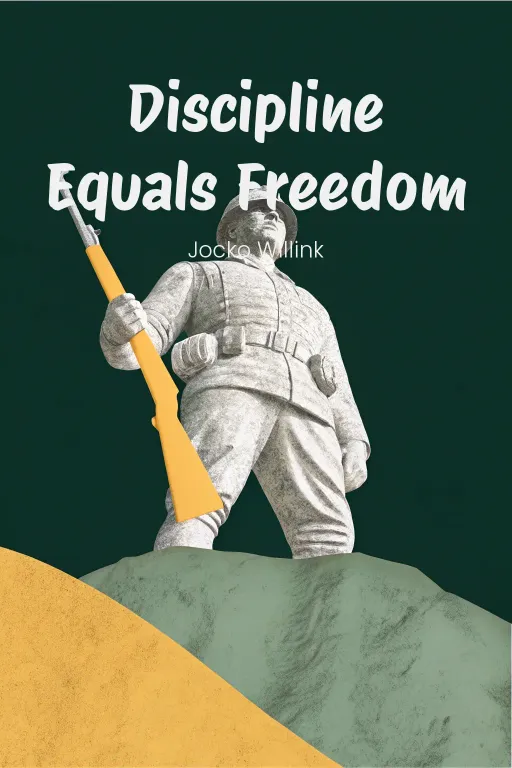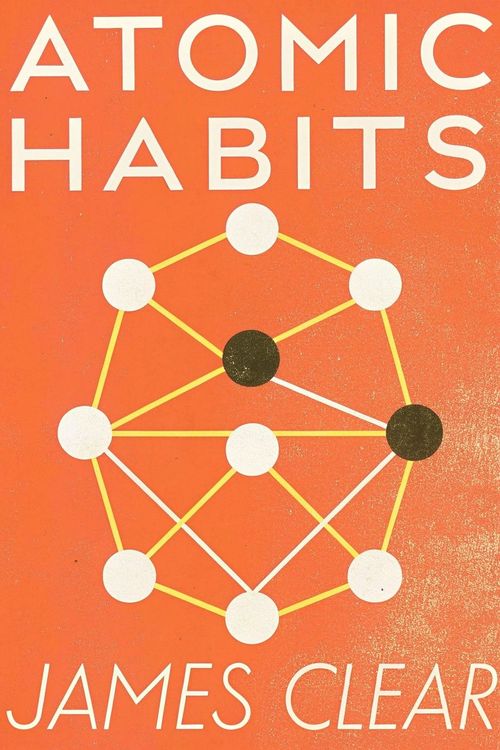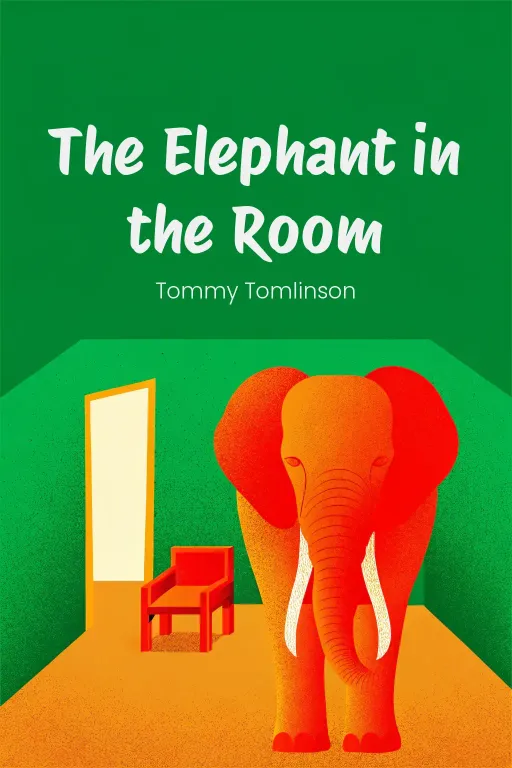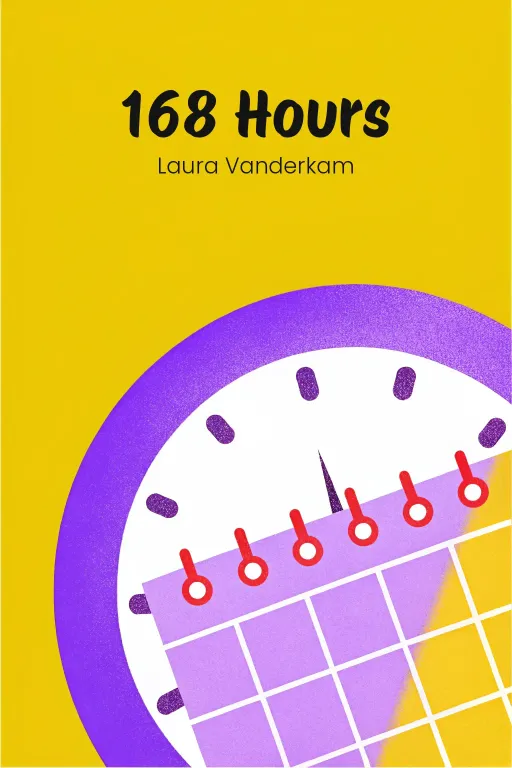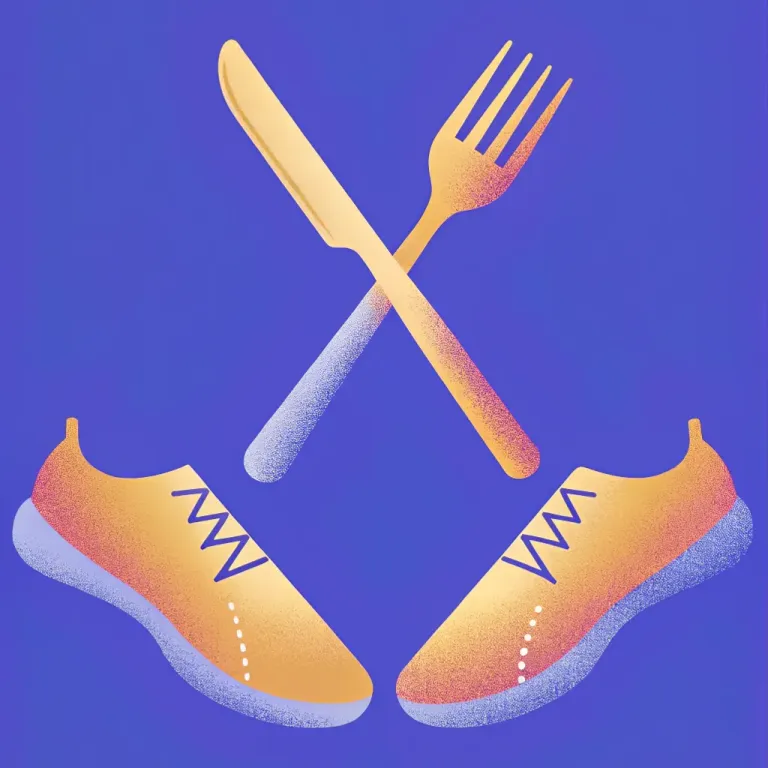
Endure Anything: Grit, Mindset, & Growth
Podcast by Beta You with Alex and Michelle
My Unlikely Journey to Ultramarathon Greatness
Endure Anything: Grit, Mindset, & Growth
Part 1
Alex: Hey everyone, and welcome back to the show! Today, we're lacing up our “metaphorical” running shoes, Michelle, because we're diving into a story of sheer grit, endurance, and really chasing something bigger than ourselves. Michelle: Whoa, hold up, Alex. Are we talking actual running here? Because if so, I might need a serious espresso shot—or maybe a nap—before we start. Alex: Not exactly a marathon, Michelle. But we are stepping into the world of Scott Jurek. Ever heard of him? This guy's an ultramarathon legend who makes running 100 miles sound, well, not just “possible”, but... almost “meaningful”. Michelle: Meaningful, huh? Okay, you’ve got my attention, but I'm still a bit skeptical. Honestly, running that far sounds more like some kind of medieval torture than a spiritual journey. Alex: I get it! But that's where his book, Eat and Run, comes in. It's part memoir, part personal philosophy, really weaving together his journey with lessons about endurance, nutrition, and the incredible power of the mind. I mean, this isn’t just about running; it’s about pushing boundaries, facing pain head-on, and discovering what you’re truly capable of. Michelle: Alright, alright, I’ll try to keep an open mind. So, what's our route look like today? What are we exploring? Alex: First up, we'll unpack how his pretty tough upbringing, you know, with family struggles and some early mentorship experiences, really laid this foundation for his insane mental toughness. Then, we’re diving deep into the world of ultramarathons – all the physical challenges, all the mental breakthroughs that reshaped how he sees, well, everything. Finally, we'll chat about his shift to a plant-based diet, how it fueled his success, and the bigger life lessons he shares along the way. Michelle: Sounds like a heck of a trek, Alex – roots, peaks, and everything in between. Alright, fine, let's hit the trail.
Foundations of Resilience and Endurance
Part 2
Alex: Alright, so to get us going, let’s dive into what “really” made Scott Jurek tick – his childhood. Honestly, it sounds like something out of a survival guide. He didn't exactly have the easiest upbringing, growing up in rural Minnesota. Michelle: Yeah, I mean, he was basically a young caregiver for his mom who had MS. That’s a lot for any kid. Helping out is one thing, but the way it sounds, he had to grow up super fast – school, chores, and watching his mom’s health. It’s almost a forced maturity, right? Alex: Exactly! And it wasn't just physical stuff; it was emotional too. His mom's illness taught him about how fragile things are, how to bounce back, and knowing you can't control everything. These experiences are the seeds of his discipline and endurance. Comfort—well, that wasn't “really” an option, which toughened him up over time. Michelle: So, instead of running from discomfort, he learned to...live with it? That’s a pretty powerful skill, but it sounds relentless. Most of us avoid pain; he kind of embraced it, didn't he? Alex: That’s “really” where Jurek’s transformation begins. Pain wasn’t a stop sign; it was more like a teacher. He always says, "Sometimes, you just do things." He wasn't one to overthink, but to just keep going – finish what you started, get through the moment, and move on. Oh, and let’s not forget that things weren’t always easy at school, either. Michelle: Right, the "Pee-Wee" thing. Kids can be brutal, can't they? It’s hard to imagine that shy, teased kid becoming this incredible ultramarathoner. Maybe that teasing toughened him up even more. If you can survive being embarrassed like that when you're young, failing at mile 70 of a race probably doesn’t sting quite as much. Alex: Totally. It all adds up, doesn’t it? While the bullying could’ve crushed him, Jurek used it to get mentally stronger. His childhood might’ve been tough, but that toughness turned out to be the perfect training for his races. Michelle: Okay, so he’s got this grit from his family’s challenges and playground taunts. But how did he channel all that inner drive? When does all that toughness turn into being truly world-class? Alex: Well, that's where Glen Sorenson comes in. He’s the high school cross-country skiing coach that “really” shaped Jurek’s mindset. Sorenson wasn’t just teaching him to ski fast; he was showing Jurek that your mind can do almost anything if you train it right. Michelle: “Pain only hurts.” I mean, that’s pretty intense and simple, almost like a Zen saying… for runners. Sorenson was basically saying that feeling pain doesn’t have to make you stop. You can learn to handle it, even embrace it. Alex: Exactly! Sorenson turned being uncomfortable into a way to prove what you're made of. This idea guided Jurek through tons of challenges. Take skiing, right? It's a huge mental and physical challenge—you need to focus, have stamina, and be able to bounce back. Those icy hills in Minnesota were Jurek’s lab for mental toughness. Michelle: I don’t know, I can’t see most high schoolers “really” understanding “embracing pain” or seeing exhaustion as a friend. What clicked for Jurek in those early sports years that might not have clicked for others? Alex: I think it was a combo of what he was going through personally and Sorenson’s way of teaching. Remember, Jurek was already dealing with a lot at home, so his tolerance for discomfort was probably higher than most kids. And Sorenson didn't baby him. There’s that one moment where there’s this incredibly icy hill that seemed impossible. Sorenson was clear: “You don’t stop now. This is where it counts.” Michelle: So, the hill becomes a symbol? Dealing with something impossible physically helps you deal with emotional or psychological mountains later on. That’s actually pretty deep. Alex: It is, but it’s also practical. It taught Jurek to focus not on how huge the hill is—or task—but on taking it one step, or ski stride, at a time. That became super important for races where how tough you are mentally matters more than how tough you are physically. Michelle: Interesting. Focusing on the journey, not just the destination—that’s something everyone can understand, not just athletes. Sounds like his coach saw sports as a way to teach you about life. Alex: Absolutely. Sorenson didn’t just teach skiing; he taught perseverance. Jurek says he helped change what could’ve been a boring physical activity into a lesson about how to bounce back. That change—from just being tough to being intentionally tough—shaped what he believed in as a runner later on. Michelle: Okay, I’m starting to see the building blocks here: resilience from childhood, discipline from family stuff, and then a way to channel it all from Sorenson. But one question keeps popping into my head—did Jurek choose to be an ultramarathoner, or did something in his past make it inevitable?
Ultramarathon Journey and Philosophical Growth
Part 3
Alex: That's a great question, Michelle. When you consider everything—his difficult childhood and the discipline he learned from Sorenson—it’s almost as if ultramarathons were meant for Jurek. It sets the stage for understanding how he translated those early lessons into his ultramarathon journey. It wasn't just about running longer distances; it became a deep, philosophical exploration of his own limits. Michelle: So we're talking about the “big leagues” of running here, right? Where a marathon is just a warm-up? Alex: Exactly! Ultramarathons are not just longer races; they are endurance epics. Take the Western States 100, which Jurek describes as a kind of rite of passage. It’s a brutal 100-mile race through California's Sierra Nevada mountains – the climbs, the descents, the scorching heat – it is not only physically demanding but also transformative. Michelle: Transformative in what sense? Beyond the obvious of turning your legs into jelly? Alex: It changes how you deal with your mental state. Jurek talks about hitting a wall during Western States from the heat. Fatigue clouded his mind, and he wanted to quit. But here’s the thing: instead of fighting the pain or trying to distract himself, he embraced it. He describes being present in that discomfort, almost befriending it, which gave him a strange clarity and focus. Michelle: Wait, we're not supposed to avoid pain? Isn’t avoidance just… human nature? Alex: Right! That's what Jurek emphasizes. Most of us instinctively avoid pain, but ultrarunners see it differently, as an opportunity to grow. Pain becomes a teacher rather than an enemy. Michelle: That's a mindset shift, I suppose. It makes me think about what I could achieve if I stopped running away from discomfort in my own life. But come on, Alex, it all sounds a little abstract, didn’t he ever find it too much? Alex: Oh, absolutely. Think about his experience at the Badwater Ultramarathon, which is known as the toughest foot race in the world. It's 135 miles through Death Valley, where temperatures go above 120 degrees Fahrenheit. Jurek talks about reaching his limit, physically and mentally, and wondering whether he could continue. Michelle: That sounds like the ultimate breaking point. So what stopped him from giving up? Alex: That’s where his support crew, especially Dusty Olson, comes in. Dusty was very direct and even yelled at him to get up and keep moving. Jurek says that sometimes you need people who won't let you give up, even if it's tough. It was a wake-up call, and he realized that resilience isn't always a solo thing. Michelle: So ultramarathons aren't entirely an individual sport? It sounds like a team effort disguised as solitary suffering. Alex: Exactly! The camaraderie and support in these races are really important in ultrarunning, that combined with your own will power. In these races everyone shares the same suffering. Western States again – Jurek mentions how competitors helped each other in unexpected ways. Michelle: Like what? Sharing a water bottle mid-race? Alex: Exactly. He remembers someone giving him water just before a difficult uphill. At that moment, they weren't rivals, but fellow adventurers on the same journey. Jurek sees it as building a collective resilience, the idea that while you can push yourself alone, the shared connections make the journey meaningful. Michelle: That's a refreshing perspective. Suffering together builds a community, and you come out stronger. It almost makes me want to run an ultramarathon. Almost. Alex: Don’t worry, Michelle, no one’s going to sign you up just yet. But Jurek’s point is important: resilience isn’t just about being tough. It’s also about getting strength from others, whether that's teammates, competitors, or mentors. Michelle: Speaking of mentors, this Hippie Dan person you mentioned earlier seems to be central to Jurek's growth. What’s his story? Alex: Dan was quite special – a hiking enthusiast who “really” changed Jurek's thinking. They talked about more than just running, also about life. One thing Dan always said was that "What you put in your body is just as important as what you allow in your mind.” Michelle: That’s deep. It sounds like he was helping Jurek think beyond just physical strength and focus on the whole human being, including the body, mind, and spirit. Alex: Exactly. Ultramarathon running for Jurek became about overall growth. Dan's emphasis on mindfulness was very important to Jurek, teaching him to be still while moving, to think even when he was “really” tired. Michelle: So, instead of stressing out about reaching the top of the mountain, Jurek learned to enjoy the climb itself. Alex: Exactly. This helped him focus on the process and not just the results. It’s a lesson that can be applied everyday, whether you're dealing with work problems or personal goals, learning to enjoy the journey can make all the difference. Michelle: Alright, Alex, I’m sold. The mental toughness, the community, the mindfulness – it’s all clicking. But let’s be honest, ultramarathons still sound “really” hard. Did Jurek ever wonder why he was doing it, besides those moments of pain? Alex: Absolutely, and that’s what makes his path so amazing. Through races like Badwater and guidance of Hippie Dan, he began to think not just about how he endured, but why. It became less about proving himself and more about seeing how far he could go. That pain, when you accept it, can lead to growth, and that endurance can connect you to something far bigger than yourself.
Transformation Through Nutrition and Personal Growth
Part 4
Alex: So, these experiences in ultrarunning really paved the way for his whole new take on nutrition and running . It’s amazing how he went from just trying to survive to really taking care of his body and mind . And that’s where we get to the heart of his philosophy: changing your life through what you eat and how you grow as a person . Michelle: Right, seeing food as fuel for life's bigger challenges, not just the actual races . Makes sense . So, let me guess—this is where the vegan stuff comes in, right? Alex: Spot on ! Going plant-based wasn’t just changing his diet; it was a total mindset shift . At first, he kind of had to do it because he was running out of energy and not recovering well during races . That’s when he started digging into nutrition and realized plants could do more than just keep him going; they could make him perform better . Michelle: Okay, hold on . Going vegan, especially as a top athlete, must have seemed crazy back then, right? Most people think you need tons of steak to be athletic, not just salad . Wasn’t he worried about, I don’t know, wasting away from not getting enough protein? Alex: That’s a common myth . Jurek was super careful about it . He didn't just start eating tofu and call it a day . He really studied plant-based nutrition . By mixing different foods—like grains, beans, nuts, and seeds—he made sure he was getting all the amino acids and nutrients he needed as an endurance athlete . Michelle: So, it's like building with Lego blocks—putting the pieces together in the right way to make something strong and complete . What made him think it could actually work? Because I'm sure plenty of people told him it wouldn't . Alex: Absolutely . Honestly, talking to other experienced runners and reading the research convinced him . He saw studies showing that plant-based diets could reduce inflammation, help you recover faster, and even improve your heart health . In races where recovery is just as important as speed, that was a game-changer . Michelle: Hmm, the science checks out, I guess . But how practical was this for someone running 70 miles a week? Did he just live on kale and plain beans? Alex: Not at all ! That’s where he got creative . Take his Lentil Burgers, for example—they’re full of protein, fiber, and taste great . Lentils give you the nutrients you need to repair your muscles, while oats and spices like cumin and paprika make it something you actually want to eat . It wasn’t just about fueling up; it was about enjoying the process of making food . Michelle: Lentils and enjoyment—didn’t see that coming . So, I’m guessing cooking wasn’t just something he had to do . It became something deeper, right? Alex: Exactly . Cooking became a way to be mindful—a way to calm down from the craziness of ultrarunning . He says it helped him stay grounded, whether he was making Lentil Burgers after a race or blending up his Green Power Smoothie before a big run . Michelle: Green Power Smoothie—sounds like one of those things that promises magical energy . What’s in this secret potion of his? Alex: It’s pretty simple—spinach, bananas, chia seeds, and almond milk . Spinach has iron, bananas have potassium for your muscles, and chia seeds have lots of omega-3s . It’s not just a quick energy boost when you blend it all together; it’s also full of nutrients that help you recover . Michelle: Okay, I’ll admit, that actually sounds… manageable . But Alex, here’s the big question for most people—apart from smoothie and burger recipes, how does this go beyond just food? Is there a deeper point, or is it just about taking care of your body? Alex: Definitely deeper . Jurek’s change wasn’t just about eating plants; it was about how he thought about taking care of himself . Food became a way to connect with his body and mind . For instance, recipes like his Carob Chia Pudding weren’t just useful—they were about self-care . Chia seeds helped him recover after tough runs, but making the pudding made him feel good and stable . Michelle: So, food as both fuel and therapy . Got it . But what about treats? Did he ever let himself have something, you know… fun, or was it just kale smoothies forever? Alex: Oh, he definitely found ways to treat himself ! Like his Xocolatl Energy Balls . Imagine this—a mix of dates, nuts, and raw cacao, made into small bites . They’re not empty calories; they’re full of antioxidants and healthy fats . It was his way of balancing what he needed with what he wanted, satisfying both his cravings and his nutritional needs . Michelle: Alright, I’ll confess . I could probably eat an energy ball or two . But the big picture here, Alex—is it correct to say that it’s not just about the recipes, is it? There’s a whole philosophy behind how he looks at food . Alex: Absolutely . Jurek’s switch to plant-based eating happened at the same time as his emotional growth . He wasn’t just fixing his diet; he was healing from years of pushing his body too hard without knowing how to “really” recover . Making food became a time to think—a moment to take care of his spirit as much as his muscles . Michelle: So, did he connect this back to his early life? I mean, taking care of his mom, dealing with loss—it sounds like there’s a link between his childhood and how he eventually saw food as something that could heal him . Alex: That link is crucial . Taking care of his mom taught Jurek about how fragile health can be . As an adult, making nourishment a priority—for himself and others—became a way to honor those lessons . And sharing meals, whether with his wife or his running friends, became just as important as training alone . Michelle: And it wasn’t just personal, right? His plant-based ideas grew into something bigger—like caring about the environment and ethical issues? Alex: Exactly . For Jurek, plant-based eating wasn’t limiting; it was freeing . It matched his environmental values while still helping him perform at his best . He encourages people to see food not just as athletes, but as people connected to the world around them . Michelle: Alright, I’ll admit it—Jurek’s message resonates . Whether it’s blending a smoothie or taking on a big life challenge, it all comes down to being intentional, right? Choosing to nourish yourself instead of ignoring your needs, focusing on the process instead of rushing, and connecting with others instead of isolating yourself . Alex: Precisely, Michelle . And that’s what’s so great about Jurek’s transformation . By changing how he thought about food and recovery, he didn’t just fuel his ultramarathons—he built a stronger, more balanced life .
Conclusion
Part 5
Alex: So, bringing it all together, Scott Jurek's story isn't just about winning those crazy 100-mile races, you know? It's really about how powerful resilience is, what we can learn from pain, and how much we can change when we take care of both our bodies and our minds. From his tough childhood to changing how we think about endurance through being mindful and eating right, he shows us that real growth happens when we embrace being uncomfortable. Michelle: Right, and he proves that endurance is more than just running a certain distance. Whether he’s running through Death Valley or rethinking what he eats, it’s all about showing up, staying focused, and leaning into those tough moments instead of running away from them. Alex: Exactly! Jurek challenges us to rethink how we deal with discomfort and to see it as a chance to grow, not just something to avoid. And that applies to everything in life, whether you're running an ultramarathon or not. Michelle: And on that note, maybe I'll start with a lentil burger rather than a 100-mile trek. Small steps, right? Alex: Absolutely, Michelle. Wherever you start, just remember—sometimes, you just have to “do” things. Anyway, thanks for joining us today as we dove into Scott Jurek’s inspiring journey of endurance, mindset, and transformation. We’ll catch you next time!


